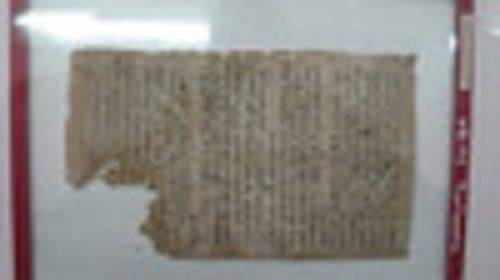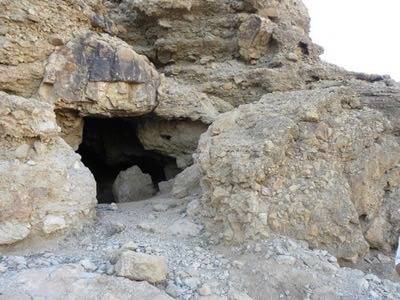The Israel Antiquities Authority and Google are teaming up to publish the Dead Sea Scrolls online.

The approximately 1,000 scrolls, managed by the IAA, were discovered in a series of caves near the Dead Sea in the West Bank. Dating from the second and first centuries, B.C.E., these Hebrew, Aramaic and Greek documents constituted a significant trove of information on the ancient world. And of course, they also contained the seeds of division.
The Tech
The scrolls will be digitized high definition scans created with the help of Google’s research center in Israel. Early next year, the IAA labs will be equipped NASA’s multi-spectral imaging technology. 30,000 fragments from almost 1,000 scrolls will be scanned at very high resolution.
The spectral imaging will allow viewers to see over-written and scrubbed out letters. And all of it will be available to anyone, online. The database, searchable in multiple languages, will have translation and other tools.
Aside from the simple but profound ease-of-use online archives provide, and of course the profound cool factor, the access to the scrolls is important for a reason that is particular to the nature and history of the Dead Sea Scrolls.

The Problem of Access
The scrolls have provided information on ancient Jewish religious practice, history of the area and its relationship with Rome, what some consider templates for Christian religious practice and more. But for most of the history of the retrieval, preservation and study of the scrolls, the conservators, a committee of scholars appointed by the IAA, have been faulted for reluctance to grant access. Even the full publication in book form of the scrolls has been held up, to some distress in scholarly quarters. Partially, perhaps mostly, this is a function of fear of insufficiently trained scholars making mistakes of interpretation. But both professional jealousy and politics have played their part.
Even since 1994, when all of the scrolls had been processed and offered to scholars, there has been controversy. Institutions wanting to exhibit portions of the Dead Sea Scrolls are given interpretive materials by the IAA that give only the official origin story. Namely, the scrolls were the product of a group of ascetic Jewish scholars living in nearby Khirbet Qumran. But recent scholarship has forwarded several alternative origin theories; one, that the manuscripts come from Jerusalem libraries; another, that they are the product of a different sect than the ones at Qumran, usually called the Essenes.
In a statement the IAA emphasized the preservationist aspect of the project as much as the informational.

“The images will be equal in quality to the actual physical viewing of the scrolls, thus eliminating the need for re-exposure of the scrolls and allowing their preservation for future generations.”
The IAA and Google did a pilot project to test the viability of this undertaking in 2008. The first of the new scans should be available within the next couple of months. The project’s estimated cost is $3.5 million.
As much of an enthusiast as I am for online access to the products of human invention, I wonder if something won’t be missing with the scrolls locked away. Anyone who’s ever seen a painting online and then seen it in person or read a poem then seen it in manuscript knows that the moment of contact is profound. I would think, in a scholarly context, it would possibly produce leaps of understanding. But I am not a scholar, so I hope some will comment here and given their opinions.
First Dead Sea Scrolls photo from Dale Gillard | Qumran and Shrine of the Book photos by Ian Scott





















